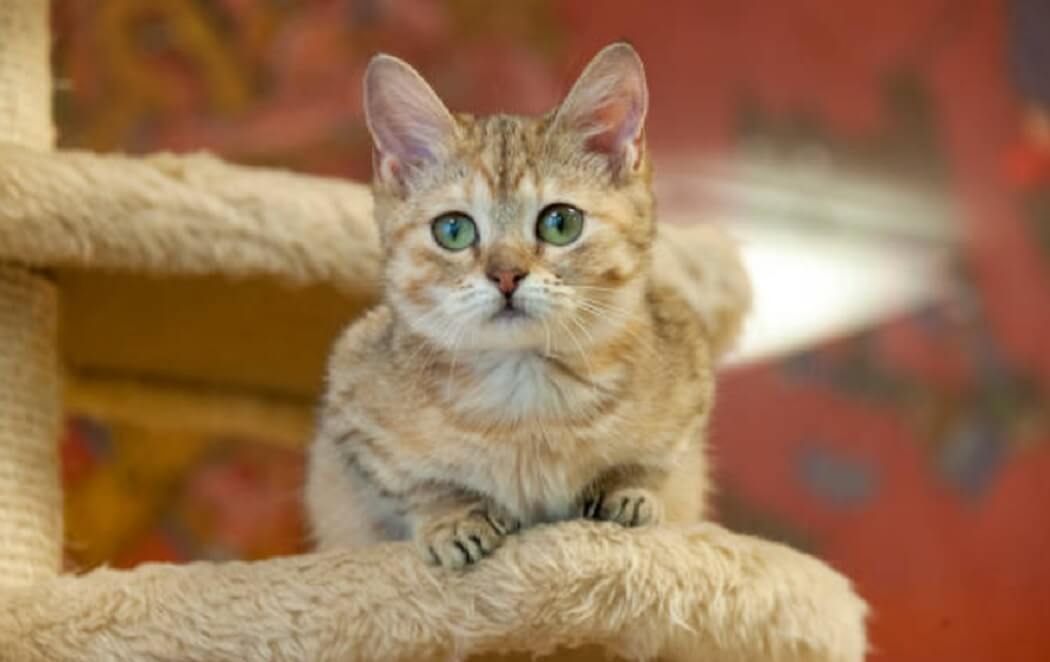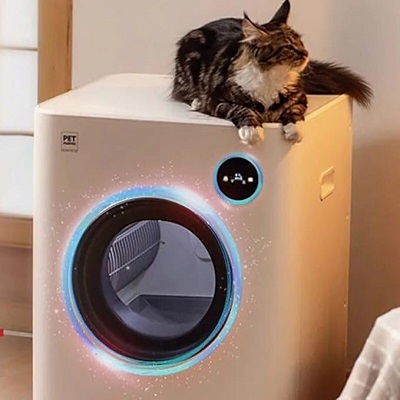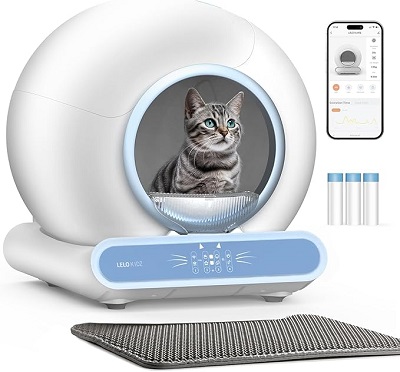
Munchkin Cat: The Adorable Short-Legged Wonder
The Munchkin cat is a distinctive and charming breed known for its short legs and playful personality. With their unique appearance and energetic nature, Munchkins have become beloved companions to many cat lovers around the world. Their small stature and quirky behavior have made them one of the most recognizable cat breeds.
In this article, we’ll dive into the history, appearance, personality, grooming needs, and health considerations of the Munchkin cat, and provide helpful tips on how to care for this unique and delightful breed.
History of the Munchkin Cat
The Munchkin cat is a relatively modern breed that gained attention in the 1980s, although their origins date back to much earlier. The breed is believed to have emerged naturally in Louisiana in the 1940s or 1950s, where some cats were born with a spontaneous genetic mutation that caused shorter-than-normal legs. These cats were often referred to as "sausage cats" or "dwarf cats."
The Munchkin breed was officially recognized by The International Cat Association (TICA) in 1994, though it still faces some controversy due to the concerns regarding the genetic mutation that causes the short legs. Despite these concerns, Munchkin cats are known for their affectionate and playful nature, and they have gained a strong following among cat enthusiasts.
Munchkins are often compared to Dachshund dogs because of their short stature and energetic, happy personalities.
Appearance of the Munchkin Cat
The Munchkin cat is easily recognizable by its short legs, but there’s more to this breed than just their unique appearance. Let’s take a closer look at the key features of the Munchkin cat:
-
Short Legs:
The Munchkin’s defining feature is its short legs, which result from a genetic mutation. This mutation causes a condition called achondroplasia, which is similar to the condition that causes dwarfism in humans. While Munchkins are smaller than most other cats, they are still proportional in build, with a compact body and muscular frame. The short legs, however, do not affect their overall health or mobility, and they move with surprising agility. -
Size and Build:
Munchkins are considered a small to medium-sized breed. They generally weigh between 5 to 9 pounds, with females being on the smaller end. Their body is solid, with a slightly rounded belly, and they have strong bones that help support their short legs. Despite their small size, Munchkins are quite muscular and athletic. -
Coat and Color:
The Munchkin’s coat can be short or long, with a variety of colors and patterns. Their fur can be soft, silky, and dense, or slightly longer with a more luxurious texture in long-haired varieties. Munchkins come in a wide range of colors, including tabby, calico, black, white, and more. The diversity in color and pattern adds to the breed's charm. -
Face and Eyes:
Munchkin cats have round faces with medium-sized ears that are set slightly apart. Their eyes are large and expressive, often green, yellow, or amber. Their eyes, combined with their distinctive coat and short legs, give them a sweet, innocent look that many find irresistible. -
Tail:
The Munchkin’s tail is of medium length and tapers to a point, in proportion to the rest of the body. It is covered with a dense, soft layer of fur that often resembles a plume.
Personality of the Munchkin Cat
Despite their small size, the Munchkin cat has a larger-than-life personality. They are known for their playfulness, affectionate nature, and outgoing temperament. Here’s what you can expect from a Munchkin cat’s personality:
-
Energetic and Playful:
Munchkin cats are full of energy and love to play. Their short legs do not hinder their agility, and they are known to be able to run, jump, and climb, though they may have to work a bit harder to reach high places. They are very curious and love to explore their surroundings. They enjoy playing with a variety of toys, especially interactive toys that challenge them to pounce or chase. -
Affectionate and Social:
Munchkins are affectionate cats that love to interact with their human companions. They are often described as dog-like in their devotion, as they will follow their owners around and even greet them at the door. They thrive on attention and affection, and they enjoy being held, petted, and cuddled. While they are independent at times, they love being the center of attention. -
Intelligent and Curious:
Munchkins are very intelligent and love mental stimulation. They are quick learners and can be trained to do simple tricks or follow commands, such as “sit” or “fetch.” Their curiosity often leads them to explore new environments or investigate hidden areas of the house. They are also known to have good problem-solving skills and enjoy games that involve figuring things out. -
Good with Children and Other Pets:
Munchkin cats tend to be friendly and sociable with other pets, including cats and dogs. They generally do well in households with children, as they are gentle and tolerant, making them great companions for families. Their playful nature makes them especially good playmates for kids.
Grooming and Care
The grooming needs of a Munchkin cat depend on whether the cat has a short or long coat. Here's a guide to keep your Munchkin looking and feeling great:
-
Short-Haired Munchkins:
Short-haired Munchkins require minimal grooming. Brushing them once a week is sufficient to keep their coat healthy and shiny. A gentle brush will help remove any loose fur and prevent mats or tangles. -
Long-Haired Munchkins:
Long-haired Munchkins require a bit more attention when it comes to grooming. They should be brushed a few times a week to prevent matting and tangling of their longer fur. Regular brushing also helps reduce shedding and keeps their coat shiny. -
Nail Trimming:
Munchkin cats should have their nails trimmed regularly to prevent overgrowth. Trim them every 2-3 weeks to keep them from becoming too long or sharp. -
Ear and Teeth Care:
Regular ear checks are important to prevent ear infections. Gently clean their ears with a soft, cat-safe ear cleaner. Munchkins are also prone to dental issues, so brushing their teeth regularly or providing dental treats can help prevent gum disease and tooth decay.
Health and Lifespan
The Munchkin cat is generally a healthy breed, though there are some health considerations due to the genetic mutation that causes their short legs. On average, Munchkins live around 12 to 15 years, though some can live longer with proper care. Here are some common health concerns:
-
Health Concerns:
- Lordosis: This condition involves a curving of the spine, which can affect the cat’s posture or movement. It is more common in Munchkins with a severe form of dwarfism.
- Spinal Problems: Munchkins may also be prone to spinal issues, including spondylosis or intervertebral disc disease (IVDD), which can cause discomfort or mobility problems.
- Hip Dysplasia: Munchkins are sometimes prone to hip dysplasia, a condition that can affect their ability to move properly, though it is not as common as in larger breeds.
-
General Health:
- Obesity: Like many small cats, Munchkins are prone to becoming overweight, so it’s important to monitor their diet and ensure they get enough exercise.
- Dental Health: Munchkins should receive regular dental care to prevent common dental issues like gingivitis or tartar buildup.
Conclusion
The Munchkin cat is a unique, affectionate, and playful breed that captures the hearts of many cat lovers. Despite their short legs, these cats are highly energetic, curious, and full of personality. Whether you’re looking for a companion to cuddle with or a playful partner to share your home with, the Munchkin cat is sure to bring joy and laughter to any household. With proper care, grooming, and attention, your Munchkin will be a loving and loyal companion for years to come.
Affiliate Products
We may earn a small commission when you shop through our links — it helps us keep sharing love and care for every dog out there, at no extra cost to you.
Up to 75% Discount

Cat Sandbox Automatic Collector
BUY NOW »
Up to 55% Discount

Self Cleaning Litter Box
BUY NOW »


